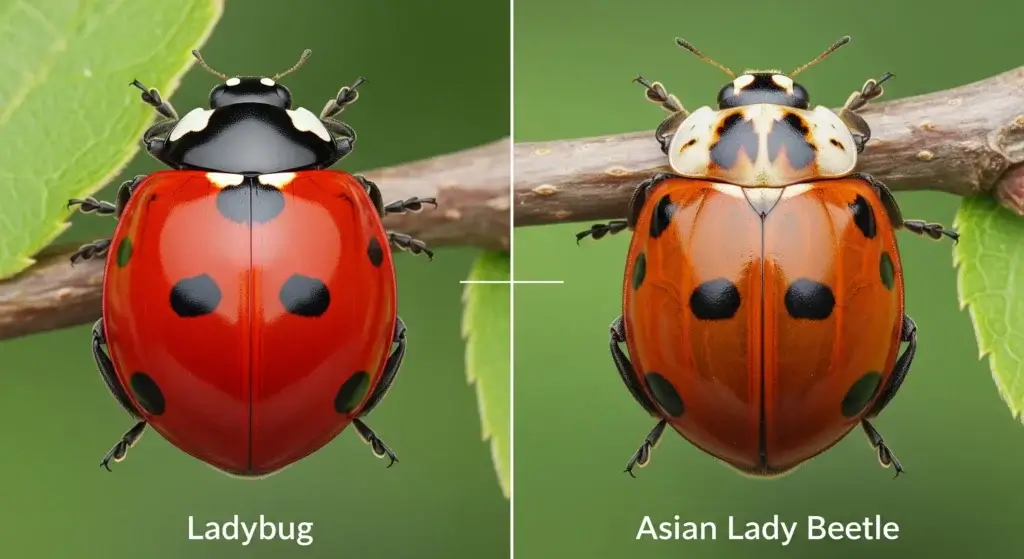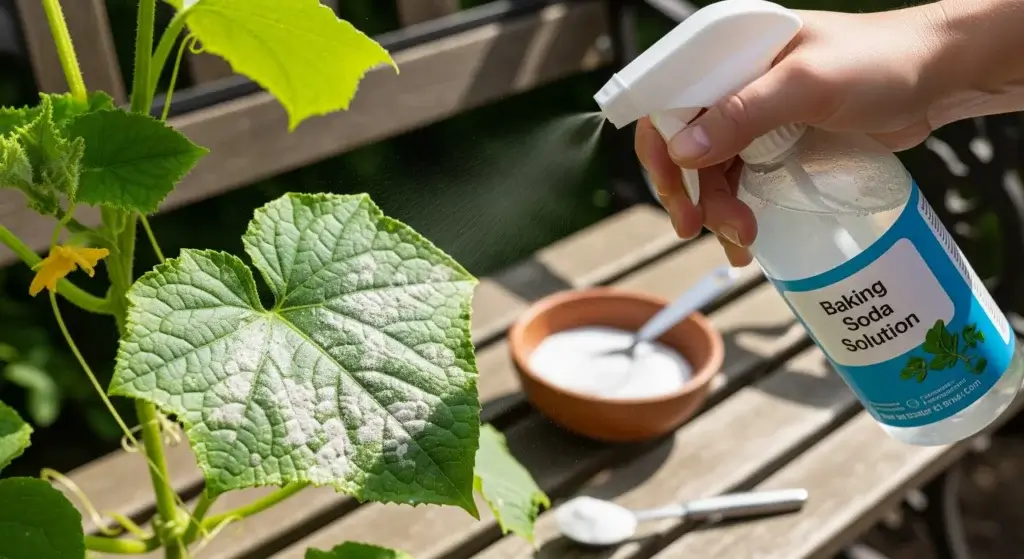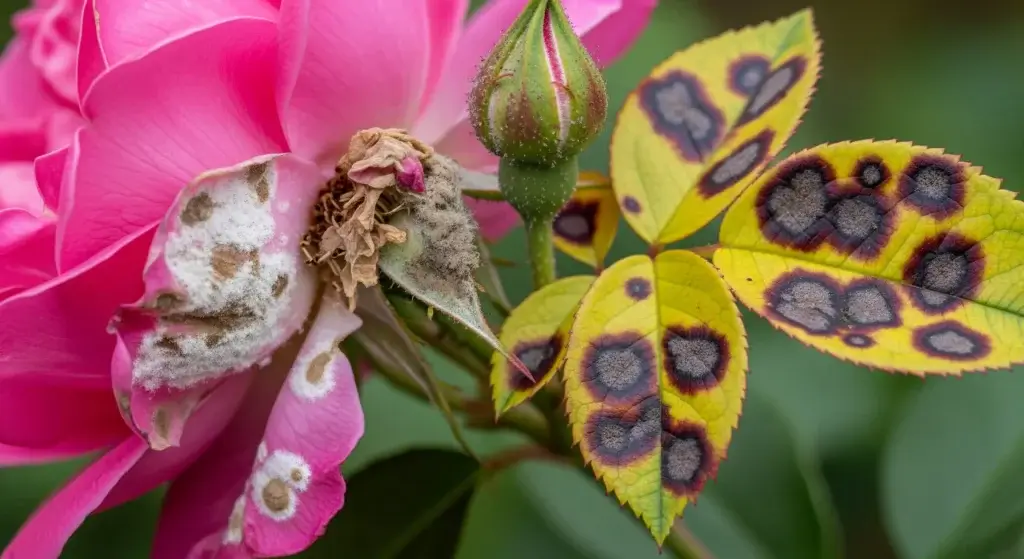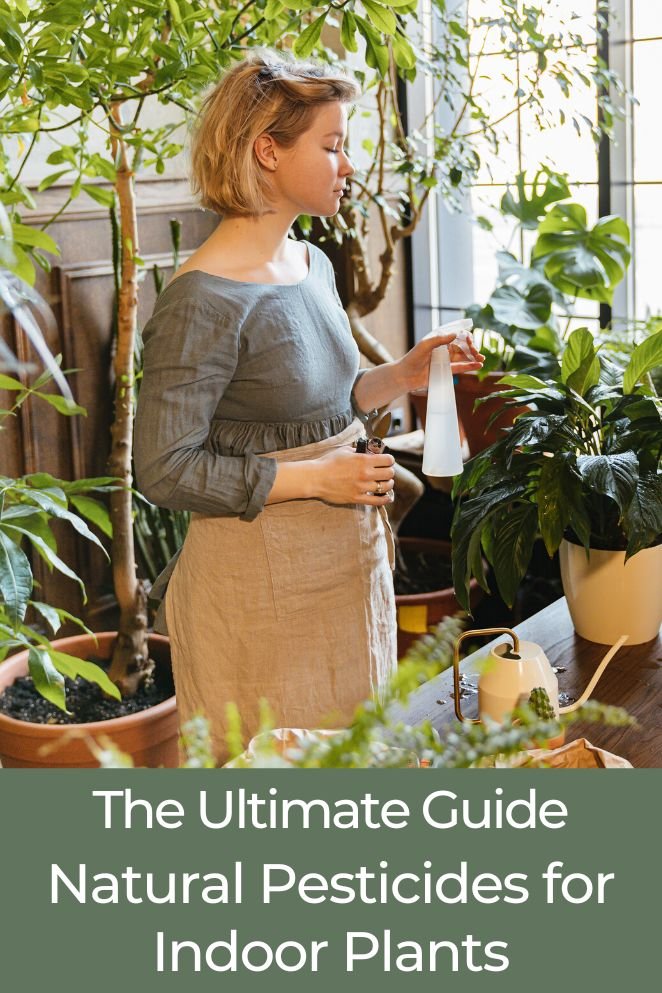
Embarking on the journey of cultivating a flourishing indoor garden introduces its own set of challenges, particularly when unwelcome pests make an appearance.
Fret not, fellow plant lovers!
Let’s delve into the realm of natural pesticides for indoor plants, unveiling effective solutions that keep your green haven thriving without resorting to harsh chemicals.
Join us on this exploration into eco-friendly pest control methods for a healthier and more vibrant indoor garden.
Best Natural Pesticides for Indoor Plants
Maintaining a pest-free indoor garden is achievable with the right natural pesticides. Here are some eco-friendly options to keep your plants thriving:
- Read also: A Guide to Natural Pesticides for Lettuce
- Read also: Natural Pesticides for Your Roses
Neem oil
Celebrated for its versatility, neem oil stands out as a potent natural pesticide.
Its efficacy lies in disrupting the life cycle of pests, acting as a formidable deterrent that safeguards your plants.
To maximize its impact, create a mixture by combining neem oil with water and applying it regularly.
This proactive approach ensures a consistent defense, keeping pests at bay and your plants flourishing.
Garlic spray
Unlock the pest-repelling wonders of garlic with a simple homemade garlic spray.
Blend garlic cloves with water, strain the infusion, and generously spray it on your plants.
The robust aroma serves as a natural deterrent, effectively deterring pests without causing any harm to your green companions.
This aromatic defense mechanism offers a fragrant shield for your indoor garden.
Insecticidal soap
A timeless remedy, insecticidal soap emerges as a gentle yet robust solution.
It works by suffocating insects upon contact, ensuring a targeted and effective approach to pest control.
To provide comprehensive protection, make sure to cover all surfaces of the plant during application.
This age-old technique proves that sometimes simplicity is the key to success in combating pests while maintaining the health of your cherished plants.
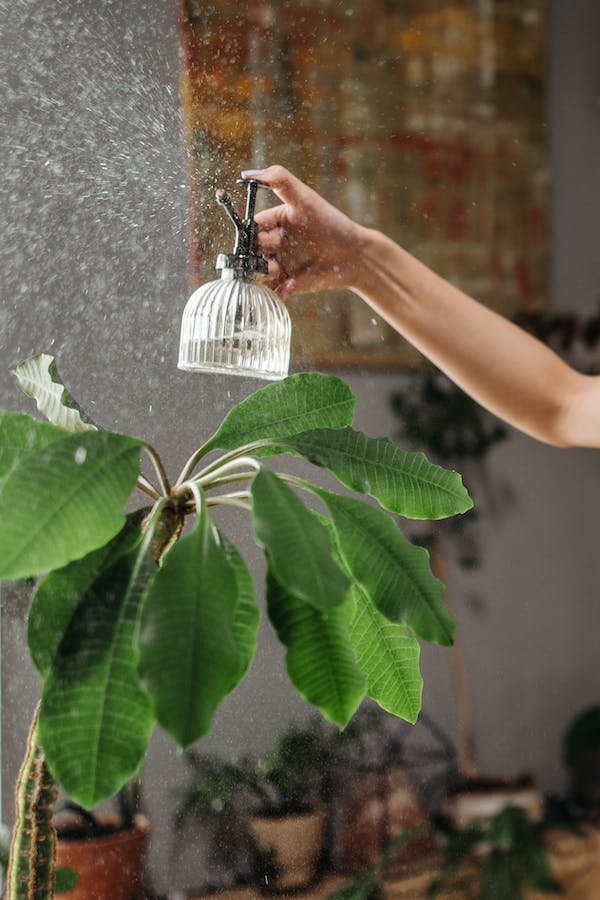
Soap spray
Crafting a simple yet potent soap spray using mild dish soap and water can be an effective pest control solution.
This mixture disrupts the cell membranes of pests, leading to their dehydration and eventual demise.
However, it’s crucial to exercise moderation to avoid inadvertently harming your plants.
A balanced and measured application ensures an effective pest management strategy without compromising the well-being of your indoor garden.
Diatomaceous earth
A powdery force against pests, diatomaceous earth stands as a formidable ally in pest control.
This natural and non-toxic substance works by dehydrating insects upon contact.
Sprinkle it liberally around your plants to create a protective barrier that pests won’t dare to cross.
Diatomaceous earth offers a gentle yet effective solution for safeguarding your indoor garden.
Pepper spray
Harnessing the heat of peppers, capsaicin becomes a potent deterrent in pepper spray.
Mix hot pepper powder with water to create a spicy solution that pests find unpalatable.
This natural and DIY approach provides an effective line of defense, utilizing the power of nature to keep unwanted insects at bay.
Sticky traps
For a non-invasive method of pest control, consider sticky traps.
These traps efficiently catch flying insects without the use of chemicals.
Strategically place them around your indoor garden to intercept pests in the air.
This discreet and chemical-free solution offers an unobtrusive way to monitor and control insect populations.
Chrysanthemum flower tea
Unlocking the natural insecticide power of pyrethrin found in chrysanthemum flowers, brew a tea using these blossoms.
Once cooled, use it as a spray to deter a variety of pests.
This botanical powerhouse provides a gentle yet effective solution derived straight from nature, showcasing the diverse ways plants contribute to pest management.
Tomato leaf spray
Discovering the natural insect-repelling properties of tomato leaves, create a solution by steeping these leaves in water.
Use the resulting mixture as a spray for your plants.
This green solution, sourced directly from your vegetable garden, taps into the alkaloids present in tomato leaves to create an effective natural deterrent against pests.
- Read also: Natural Pesticides for Your Herbs Garden
- Read also: Guide to Natural Pesticides for Tomatoes
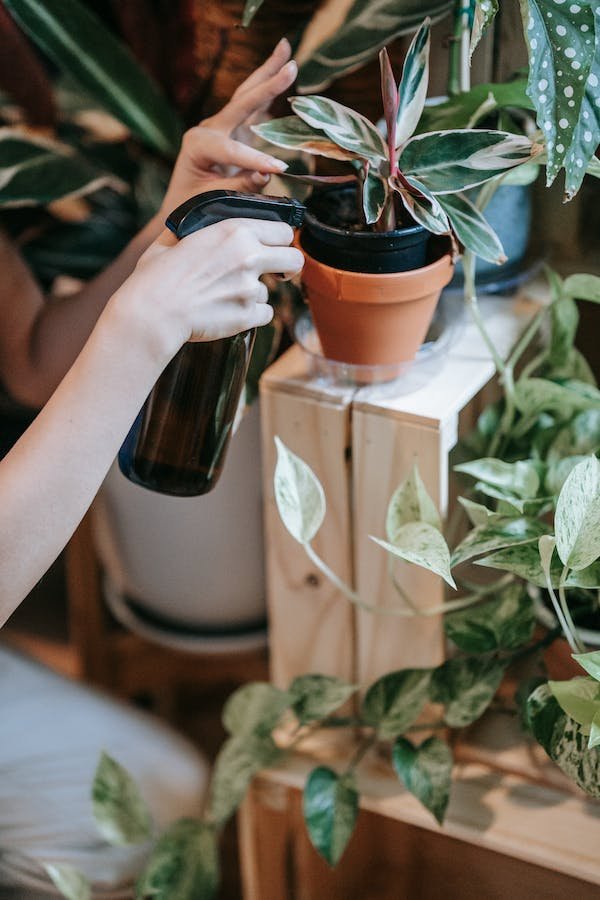
Conclusion
Embracing natural pest control methods is a holistic approach to safeguarding your indoor plants.
By opting for eco-friendly alternatives, you not only protect your cherished greenery but also contribute to a more sustainable and environmentally conscious lifestyle.
Bid farewell to harmful chemicals and embrace the power of nature in nurturing a thriving and vibrant indoor garden.
FAQs
The frequency depends on the severity of the pest issue. In general, apply once a week or as needed, ensuring not to overuse.
Most natural pesticides are safe when used as directed. However, it’s advisable to keep pets away during application and allow the solution to dry before reintroducing them.
While some can be combined, it’s essential to check compatibility. Avoid mixing solutions with different ingredients unless specified.
Many natural pesticides are specific to harmful pests and won’t harm beneficial insects. However, use them judiciously to maintain a balance in your indoor ecosystem.

